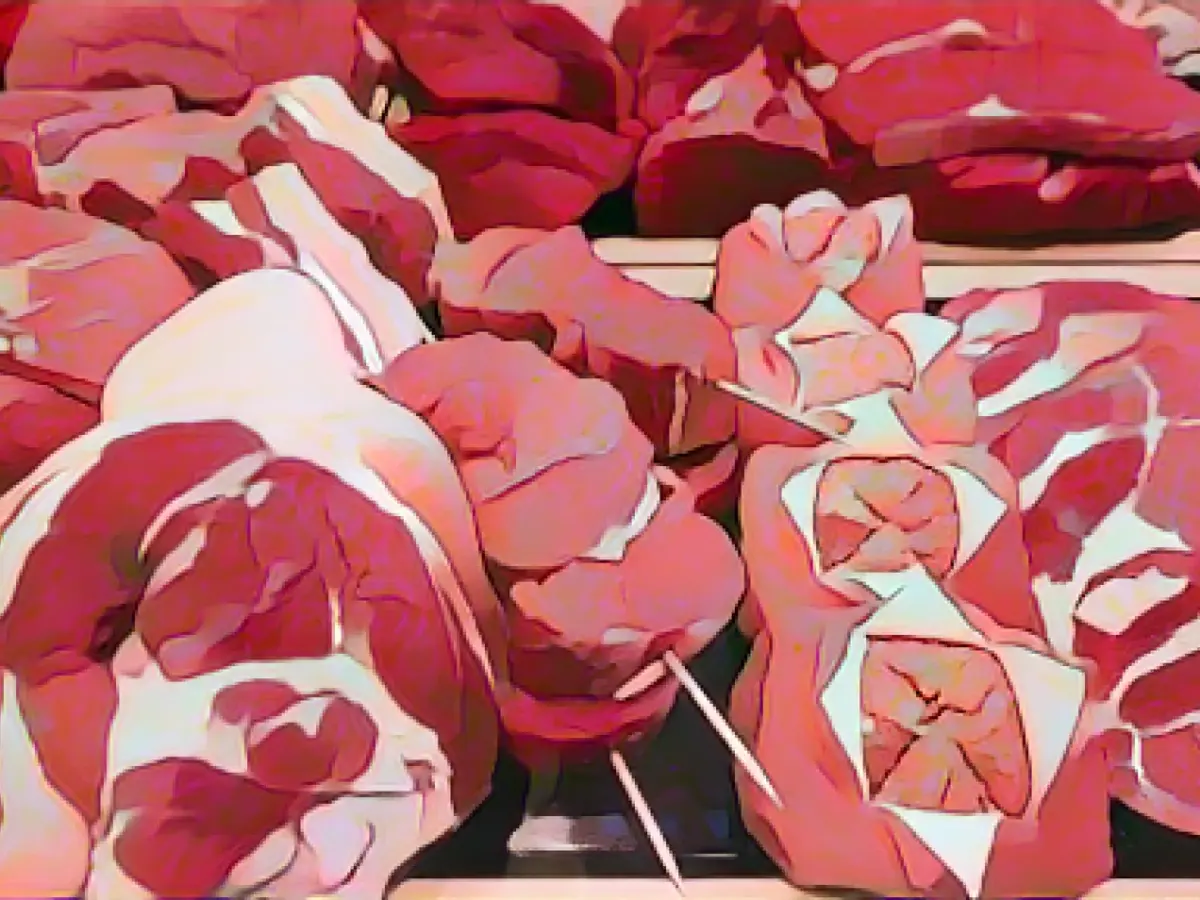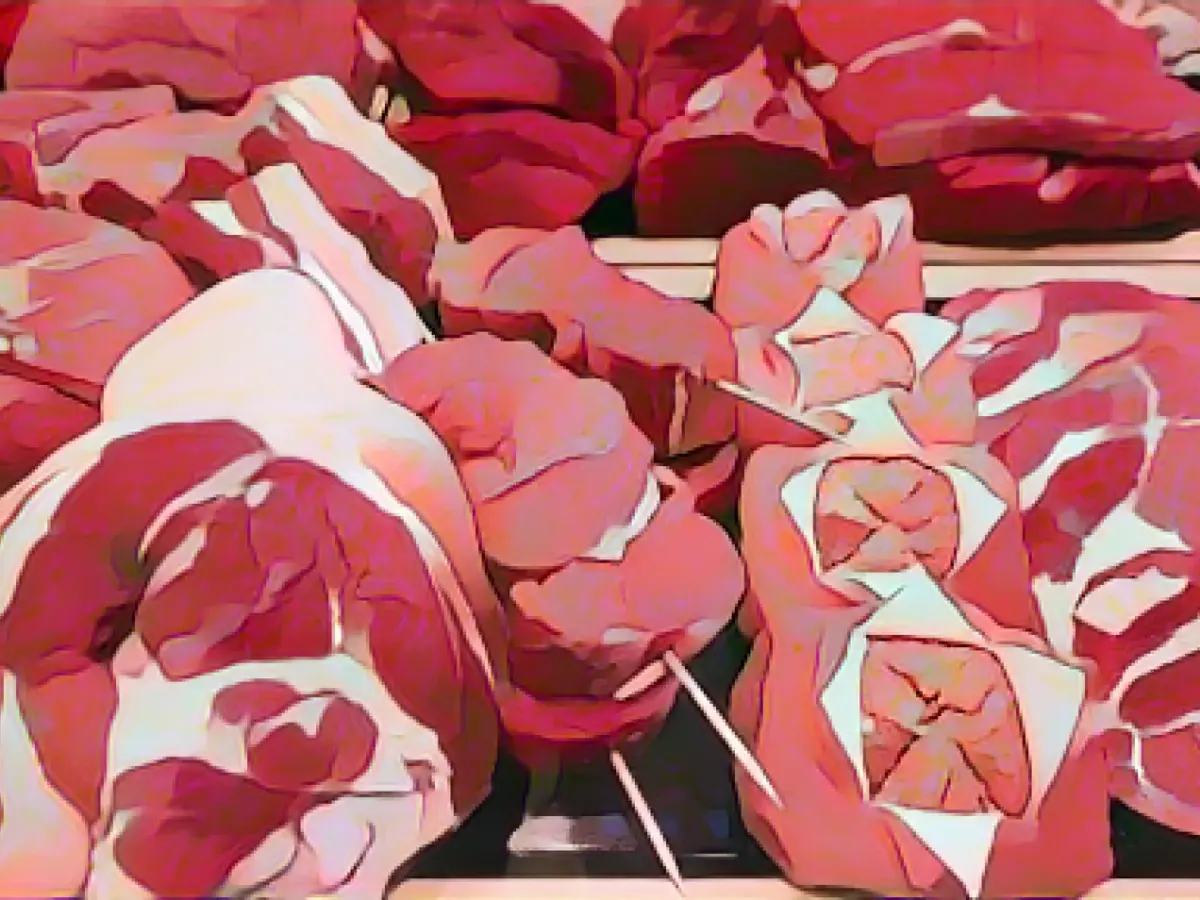Frustrating Supermarket Inconveniences
Literally staring back at you as you enter the spacious refrigerators brimming with cold cuts and cheese are the black-and-white warning notices. These notices, which hang every two meters, share a grim reality - "Important information for customers: Unfortunately, due to strikes in our central warehouses, there may be incorrect items in the range." In a Rewe store in Hilden, North Rhine-Westphalia, and many other stores nationwide, it's a familiar sight.
For months, empty shelves have become the norm in German supermarkets. While retailers and trade unions like Verdi have been in a lengthy stalemate over wage negotiations, consumers have had to endure limited options when it comes to their weekly shopping. The prolonged deadlock seems to have no immediate resolution.
A strategy in uncertainty
Are things really as bad as the supermarkets claim? According to retail expert Jörg Funder, the companies have a strategic reason for downplaying the problem. "The companies naturally don't want to admit that the situation is difficult; anything else would be a success for the union," he explains. Playing down the situation is essential to avoid enhancing the union's position, and discouraging customers from shopping, as suggested by retail expert Martin Fassnacht.
Unpredictable shortages
If companies remain tight-lipped about specific product shortages, the local retailers aren't afraid to speak out. One retailer operating several stores in the Dortmund area has spoken openly about the repercussions of the strike on his business. The strike is causing significant disruptions in the supply of goods; he has to rely on forwarding agents for deliveries, which incurs extra costs.
Nevertheless, the retailer acknowledges the gravity of the situation, with bottlenecks reminiscent of the coronavirus pandemic. Items like popular produce were missing from shelves after just three days. Despite customers' general understanding of the predicament, their frustration is evident when their preferred muesli isn't available.
Which items are at stake?
With the supermarket shelves often left with gaping holes, retail expert Jörg Funder highlights that food items with short shelf lives, such as fruit, vegetables, meat, and frozen goods, frequently run out of stock due to disruptions in the logistics and warehouse operations. The impact of the strikes varies depending on the region, as indicated by Funder. In rural and smaller-medium towns where storage space is limited, the empty shelves become more noticeable.
As negotiations between Verdi and retailers remain stalled, tensions between the two sides escalate. Verdi is demanding a significant wage increase of at least 2.50 euros per hour and a year-long term, while retailers are only willing to offer a smaller increase and inflation compensation bonus for two years. Lack of progress in negotiations has resulted in intensified strikes with threats of further escalation, which would be particularly detrimental to consumers who look forward to festive shopping around the Christmas season.
- Ongoing wage negotiations between retailers and trade unions, including Verdi, have led to disruptions in the distribution of consumer goods, with supermarkets dealing with temporary shortages of items like fruit, vegetables, meat, and frozen goods.
- Despite the companies playing down the situation, retail experts suggest that local retailers in specific regions are experiencing critical situations as a result of the strikes.
- As negotiations continue, trade unions are demanding a substantial salary increase of at least 2.50 euros per hour and a one-year duration, while retailers are offering a more modest salary raise and inflation compensation bonus for two years.
Source:
Enrichment Data:
Although the supermarket shortages in Germany have not been specifically attributed to the ongoing wage negotiations between retailers and trade unions, such as Verdi, as per the provided sources, there are broader economic challenges at play. The decline in production within the machine tool industry and the impact of global crises on the German economy have been noted in the sources, affecting retailers in general. For current and up-to-date information on product shortages related to labor disputes, research more recent news reports or official statements from the parties involved in the dispute.








